Popular Cities in South Korea for Lvad are:
Listing popular specialists:
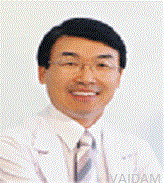
Professor, 20 years of experience

Hypertension Angina Arrhythmia Cardiovascular diseases Heart failure Atrial fibrillation
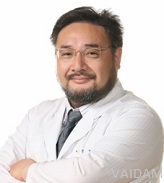
Professor, 25 years of experience

Lung disease, General chest, Trauma, Pleurectomy, Video-assisted thorascopic surgerY
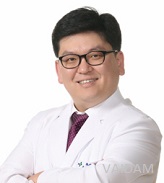
Professor, 20 years of experience

Thoracic surgery with focus on thoracoscopic surgery, Lung transplantation, Esophageal tumor, Mediastinal disease, Pleural disease, Lung cancer
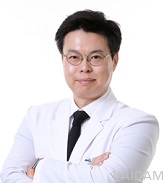
Professor, 20 years of experience

Artificial heart implants, Heart valve disease, Coronary artery disease
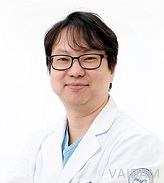
Professor, 15 years of experience

ECMO, Heart Valve disease, Coronary artery surgery, Aortic disease
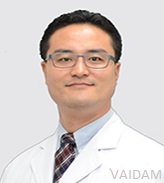
Associate Professor, 18 years of experience

Congenital & adult cardiac, Valve & coronary & aorta surgeries, Endovascular surgery, Extracorporeal circulation, Pleura, Vascular and endovascular disease
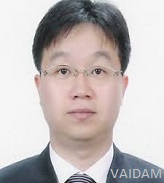
Associate Professor, 18 years of experience

Hypertension Heart Failure Coronary Artery Disease Myocardial Infarction
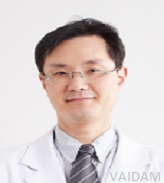
Associate Professor, 20 years of experience

Chest pain, Hypertension, Myocardial infarction, Peripheral Vascular disease
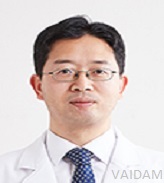
Professor, 18 years of experience

Lung cancer Esophageal cancer Mediastinal tumor
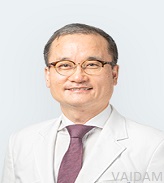
Head of Department, 15 years of experience

Angina Myocardial infarction Aortic aneurysm Aortic dissection Valvular disease Cardiac tumor Atrial fibrillation
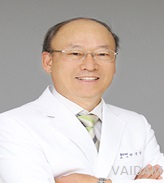
Professor, 30 years of experience

Coronary artery disease Heart valve disease Heart failure
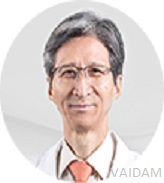
Professor, 30 years of experience

Valvular disease Aortic disease
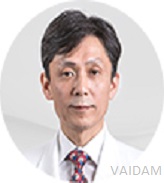
Professor, 20 years of experience

Coronary artery disease Valvular disease Heart failure
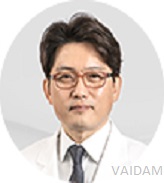
Professor, 20 years of experience

Aortic disease Valvular disease Varicose veins Robotic surgery
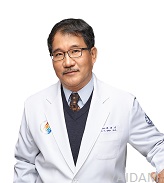
Professor, 30 years of experience

Coronary surgery Aortic surgery Congenital heart disease Heart transplant Peripheral artery and vein surgery Angioplasty
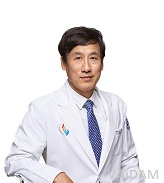
Professor, 30 years of experience

General thoracic disease
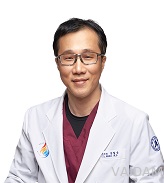
Professor, 17 years of experience

Cardiovascular surgery Aortic aneurysm Aortic dissection Upper limb angioplasty Pulmonary embolism Inferior vena cava Intravascular stent Carotid artery surgery Thoracic fracture and trauma
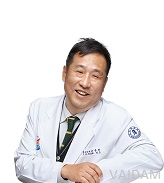
Professor, 20 years of experience

Lung and Esophageal disease Pneumothorax Hyperhidrosis
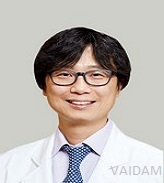
Associate Professor, 22 years of experience

Angina Infarction Heart valve Great vessel Hypertrophic cardiomyopathy Mechanical assist device Congenital heart disorder
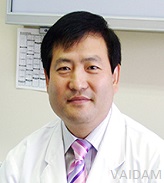
Professor, 23 years of experience

Thoracoscopic surgery MIS thoracic oncology
Our Services for Lvad in South Korea
Transparent - Professional - Without Hassles
LVAD is a mechanical pump that is placed in patient who have got heart failure.This device helps the bottom chamber of your heart for pumping out blood to the ventricle aorta and rest body part. Therefore, it is known as left ventricular assit device.
It cannot replaced your heart, it receives blood from the left ventricle and then deliver it to aorta. LVAD along with left ventricle pumps the blood.
Your doctor may recommend you LVAD when your left ventricle is damaged enough which affects its ability to pump blood, it can be a short term device to keep your heart pumping till you undergo heart transplant.
LVAD is permanent in some critically ill patient whose condition is not eliglible for them to undergo heart transplantation. It is also known as destination therapy.
The purpose of LVAD and pacemaker are different, LVAD helps the heart in pumping the blood effectively, while a pacemaker helps in correcting the irregular or slow heartbeat. Pacemaker generates electrical stimulation which regulated heart beat.
This device is not new, it was invented in 1962 and it was first time implanted in 1966 in a 37 years old patient.
Patients who cannot do any physical activity because of their cardiac disease, they are comfortable only when they are resting.
Yes, LVAD devices are now portable, you can return home with the LVAD and continue your normal activities while waiting for a heart to become available.
This device is implanted during open heart surgery, the pump unit is placed in the chest which is implanted by the surgeon into the apex of heart where it receives blood. A tube is used which delivers blood from aorta which works by pumping blood continuously from left ventricle to aorta. The pump is attached to cable and the controller, the cable passes from the device through the skin on your belly to controller and a small computer is placed outside your body. Controller provides you the message and alarm for helping your operating system.
Cardiac surgeon are specialized in placing LVAD.
It generally takes four to six hours and you'll be asleep during the procedure, so you shouldn't feel any pain during the procedure.
Usually an average life of 5 and half year is seen with LVAD. Mostly 85% patients live one year after they get LVAD and 70-75% patients live for 2 years after LVAD. The maximum life of seven years is seen in a patient of LVAD.
No, you cannot swim with LVAD as it cannot be submerged. There is some hope that an fully implantable device will be made in future with which you can swim easily
Exercises has given multiple beneficial effects on heart failure patients which is expected to improve the quality of life.
Even though LVAD is said to be durable and reliable device its replacement is expected in some patients.
When LVAD fails it leads to bleeding, complications, thrombosis, ischaemic and haemorrhagic strokes, infection and organ failure.
Patient have to stay in hospital for 3-5 days after recovery, most patient remain in hospital for minimum 2 to 3 weeks.






NABH Certified Healthcare Discovery Platform
Vaidam is NABH certified healthcare discovery platform that will connect you to top-notch medical experts, hospitals, wellness options, and trusted travel partners to help identify and make the right healthcare choices.

Researched & Personalized Treatment Plan - Under One Roof
You can search for the best hospitals, read about them, view photographs of the facilities at the hospitals and the places at which the hospitals are located, and check the cost of treatment.

Quality Treatment Within Your Budget
As soon as you post an enquiry, the patient relation team will collect details from you, share them with the doctors and hospitals on Vaidam's panel, and get a personalized treatment plan. We research to get quality treatment within your budget.

Treatment to Travel
Vaidam concierge assists patients, to get medical Visa, the best airline fares and arrangements for your stay. Our concierge also helps you with daily travel, language, and food concerns. Vaidam does everything to be your perfect host. All of Vaidam’s services are free of cost to patients.

International Reach
Vaidam Health has network in 15+ countries, which includes India, Turkey, UAE, Germany, South Korea, Thailand, Malaysia, Spain.
Note: Vaidam Health does not provide medical advice, diagnosis or treatment. The services and information offered on www.vaidam.com are intended solely for informational purposes and cannot replace the professional consultation or treatment by a physician. Vaidam Health discourages copying, cloning of its webpages and its content and it will follow the legal procedures to protect its intellectual property